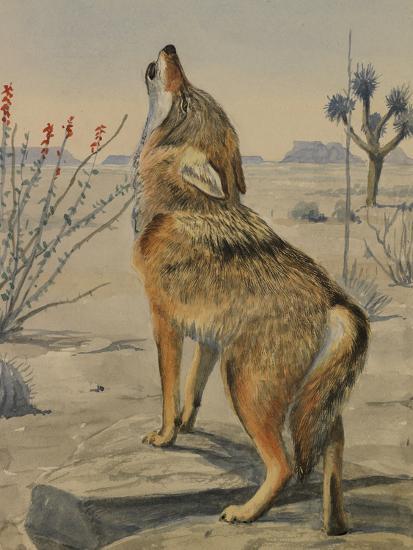
Wednesday
Having been raised in segregated Tennessee in the 1950s and ’60s, I don’t know why I continue to be surprised by the depth of American racism, but I am. The recent shooting of jogger Ahmaud Arbery (Columbia journalism professor Jelani Cobb described it as “a suburban game hunt”) resembles the vigilante killing of high schooler Trayvon Martin almost exactly eight years earlier. Far too many Americans regard people of color the way hunters in Barbara Kingsolver’s Prodigal Summer (2000) see coyotes.
I mention Kingsolver’s novel because it gets at how primal such hatred can be. Forest ranger Deanna Wolfe encounters hunter Eddie Bondo, who has come to the Appalachians to participate in the Mountain Empire Bounty Hunt. Their brief but passionate fling is like a love affair between an Obama and a Trump supporter, with Wolfe wanting to protect coyotes and Bondo to exterminate them. Wolfe understands Bondo’s hatred once she discovers he’s a Wyoming sheep rancher:
A sheep rancher. She knew the hatred of western ranchers toward coyotes; it was famous, maybe the fiercest human-animal vendetta there was. It was bad enough even here on the tamer side of the Mississippi. The farmers she’d grown up among would sooner kill a coyote than learn to pronounce its name. It was a dread built into humans via centuries of fairy tales: give man the run of a place, and he will clear it of wolves and bears. Europeans had killed theirs centuries ago in all but the wildest mountains, and maybe even those holdouts were just legend by now. Since the third grade, when Deanna Wolfe learned to recite the Pledge and to look up “wolf” in the World Book Encyclopedia, she’d loved America because it was still young enough that its people hadn’t wiped out all its large predators. But they were working on that, for all they were worth.
The mountain Empire Bounty Hunt is organized around the first day of May, which Wolfe knows is
the time of birthing and nursing, a suitable hunting season for nothing in this world unless the goal was willful extermination. It had drawn hunters from everywhere for the celebrated purpose of killing coyotes.
Race hatred is similarly intense. My own explanation for this (not only mine) is that almost every immigrant group, upon coming to America, could base its identity on a superiority to African Americans. Usually immigrants start off at the bottom of the social hierarchy into which they enter, but in this instance, they were given certain cultural capital from the get-go: another scapegoated race eventually diverted attention from themselves. Thus we have the strange phenomenon of certain Irish-Americans, Scottish Americans, Italian-Americans, Serbian-Americans, Polish-Americans and others becoming just as racist as the original slave owners, even though they themselves had been the target of ethnic attacks in the old country. If racism becomes part of your foundational identity, it feels primal.
Which helps explain Donald Trump’s popularity. He rose to political prominence on the basis of anti-Obama birtherism, and many white Americans, fearful of being submerged by growing diversity, feel a profound sense of gratitude. Because this television star is affirming deeply held prejudices that they have been told are shameful, they will forgive him anything, even loss of jobs and loss of life. “Build that wall!” and “Make America White Great Again” resonate to the core.
Kingsolver’s project, in both Prodigal Summer and Flight Behavior (where she tackles climate change), is to imagine ways in which a polarized America can talk to itself. In the course of Bondo’s brief relationship with Wolfe, his mind is opened, at least a little. He reads her thesis on coyotes and discovers the importance of predators to the food chain. He also discovers that coyotes don’t only eat lambs but “rodents and fruits and seeds and a hundred other things.”
When he goes, therefore, he leaves behind the ambiguous note, “It’s hard for a man to admit he has met his match.” While she may not have converted him, he at least spares the den of coyotes she has been lovingly watching. Dialogue, Kingsolver tries to show, is possible.
Will race dialogue ever be possible in this country? Obama thought so but failed to convince a significant segment of the population. If race hatred goes as deep as coyote hatred, we have some distance to travel.

